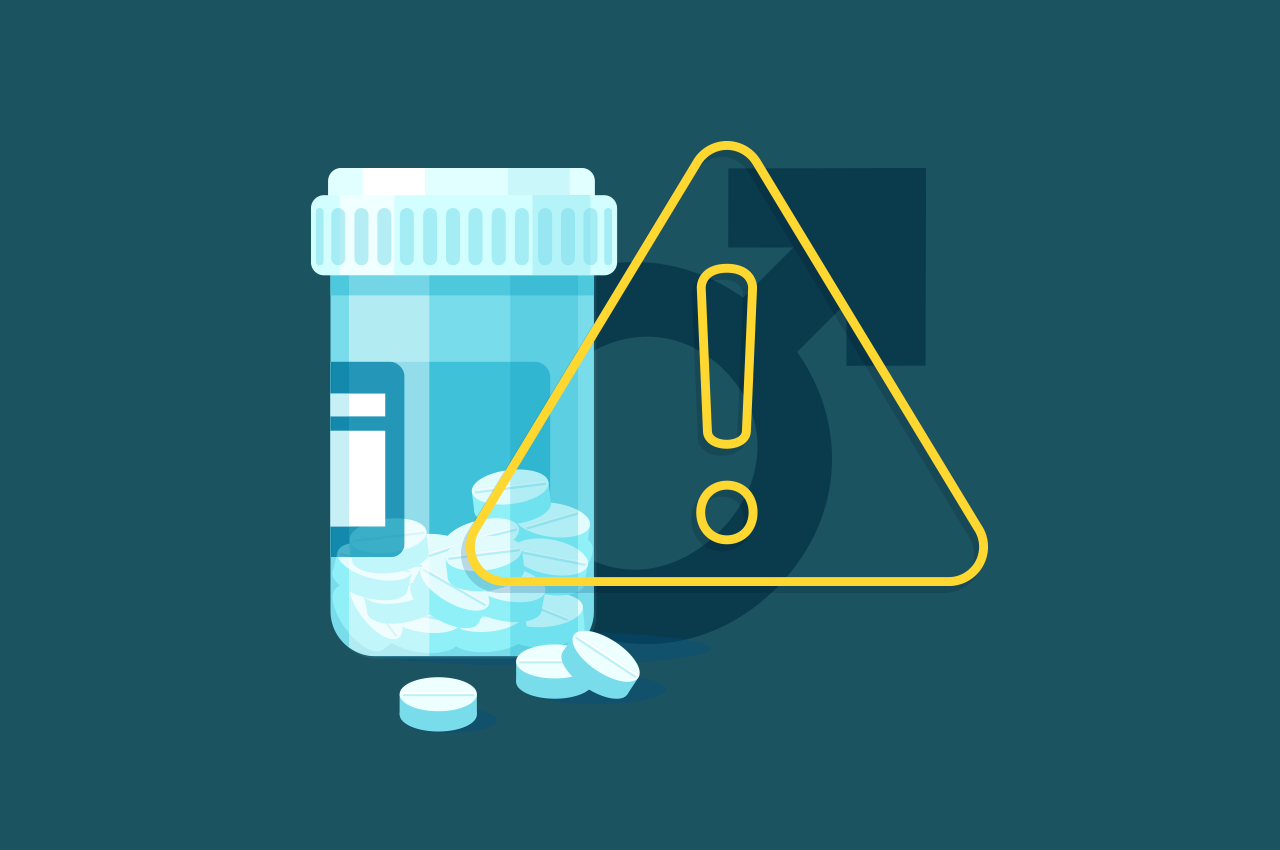Erectile dysfunction – the inability to get or maintain an erection during sex – can be distressing for both partners and can severely affect the quality of life of the sufferer. Recently, several new medications have been developed to assist the approximately 10% of men aged between 40 and 70 who experience the disorder.
Drugs for ED and how they work
Drugs for erectile dysfunction are in a class of prescription medications called phosphodiesterase (PDE) inhibitors. They cause vasodilation – the widening of blood vessels – by relaxing the walls of your arteries, and increasing levels of nitric oxide in your blood. Wider blood vessels improve blood flow to the penis and having an engorged penis makes it easier to get and maintain an erection during sex.
There are four drugs regularly prescribed for ED.
- Avanafil.
- Sildenafil (Viagra).
- Tadalafil (Cialis).
- Vardenafil (Levitra, Staxyn).
While each works similarly, they differ in their effectiveness.
Avanafil (Stendra)
This medication begins working within 15 minutes and effects can last for up to six hours.
Sildenafil (Viagra)
Viagra takes around 30 minutes to become effective and lasts about four hours.
Tadafil (Cialis)
This medication is effective for up to 36 hours in some cases.
Vardenafil (Levitra, Staxyn)
Takes about 30 minutes to start working and the effects last about five hours.
Common side-effects of all four medications include:
- Headache.
- Flushing (worsened by spicy foods, alcohol, or being in a warm environment).
- Back or all-over body aches and pains.
- Stomach upsets like diarrhoea, indigestion or heartburn.
- Dizziness or lightheadedness.
- Stuffy or runny nose.
- Blurred or altered vision.
Alcohol may worsen some of these effects, especially the dizziness and headache. Because of the vasodilation effect, it can also cause a drop in blood pressure and speed up your heart rate.
Severe side-effects include:
- Priapism – an erection that lasts far longer than the medication should be effective for.
- A complete loss of vision in one or both eyes.
- Numbness, burning, or tingling in the arms, hands, feet, or legs.
- Rashy, peeling, blistering or itchy skin.
- Swollen eyelids, or swelling of the face, throat, tongue, lips, eyes, hands, feet, ankles, or lower legs.
- Sudden decrease or loss of hearing.
- Ringing in ears.
- Hoarseness.
- Difficulty breathing or swallowing.
- Fainting.
If you experience any of these side-effects, get medical help as soon as possible.
Do not use erectile dysfunction medication if you:
- Have had a loss of vision or retinitis pigmentosa.
- Take nitrates, like nitroglycerin or a similar medicine, for chest pain or heart problems.
- Are taking alpha-blockers to treat prostate enlargement.
- Are allergic to any other erectile dysfunction medications.
Alpha-blockers and medications with nitrates increase blood flow by relaxing your blood vessels, allowing them to widen. Erectile dysfunction drugs do the same and a cocktail of these can lead to a severe drop in your BP, leading to extreme dizziness and fainting.
Before you look at medication to treat your ED, tell your doctor if you are allergic to any medications; are taking any medications or supplements and if you will be undergoing any type of surgery. Also ask your doctor or pharmacist if any of your current medications contain nitrates or any other ingredient that could interact with ED medications.
References:
- https://www.bumc.bu.edu/sexualmedicine/physicianinformation/epidemiology-of-ed/
- https://pmj.bmj.com/content/93/1105/679
- https://www.mayoclinic.org/diseases-conditions/erectile-dysfunction/diagnosis-treatment/drc-20355782
- https://www.everydayhealth.com/erectile-dysfunction/who-shouldnt-take-erectile-dysfunction-drugs.aspx
- https://www.niddk.nih.gov/health-information/urologic-diseases/erectile-dysfunction/treatment
- https://medlineplus.gov/druginfo/meds/a603035.html
- https://medlineplus.gov/druginfo/meds/a604008.html
- https://medlineplus.gov/druginfo/meds/a614010.html
- https://www.healthline.com/health/erectile-dysfunction-medications-common-side-effects#severe-side-effects
- https://medlineplus.gov/druginfo/meds/a699015.html

